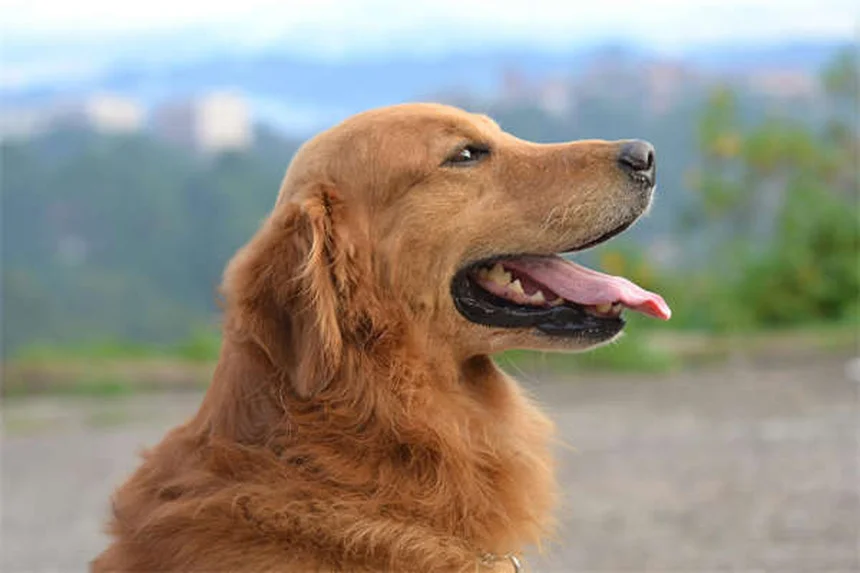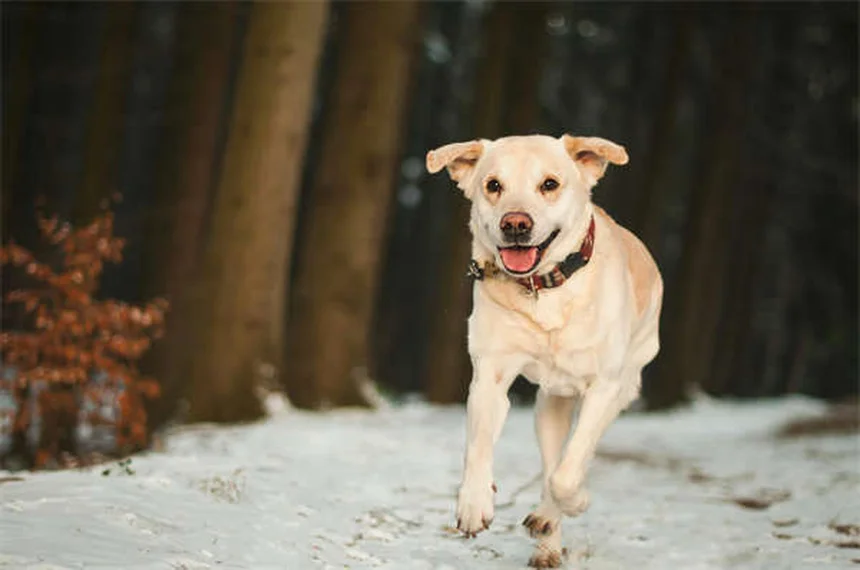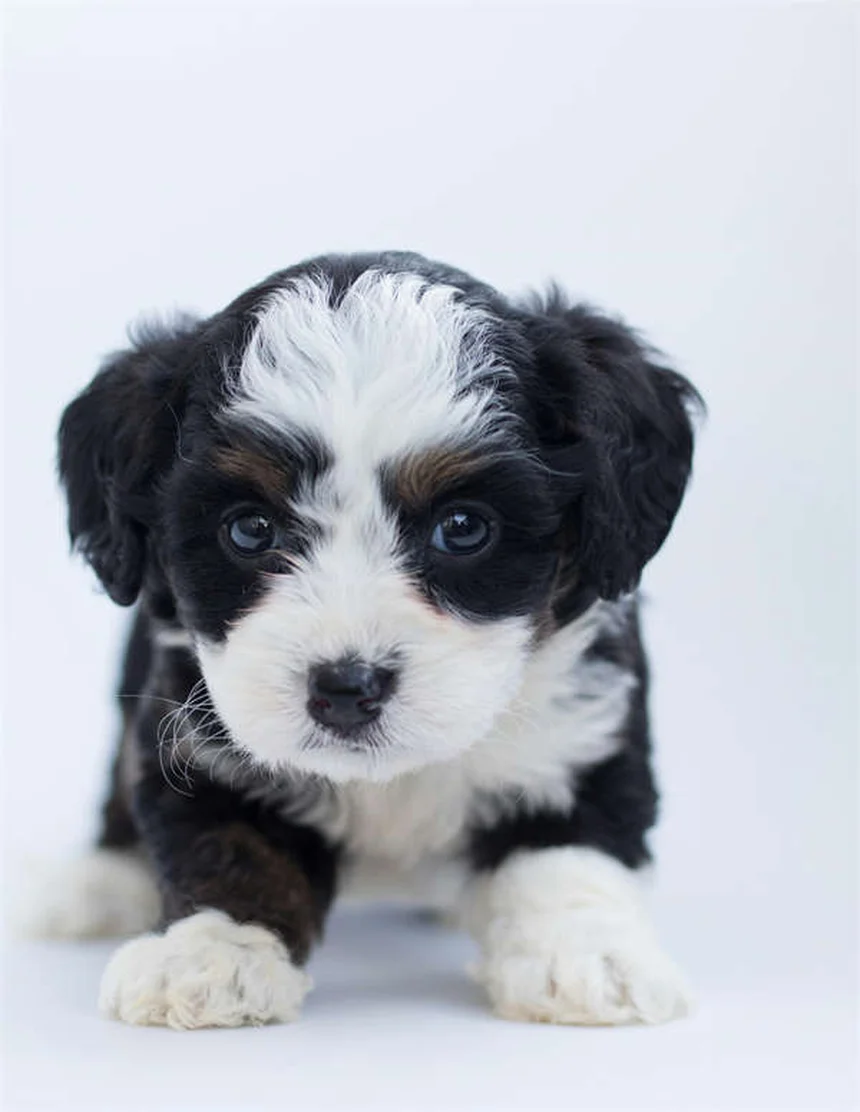Looking for the best hound dog breeds to join your active family? We've got you covered! After years of working with these amazing pups, we can tell you that hound dogs make some of the most loyal, energetic, and entertaining companions you'll ever find. Whether you're drawn to the lightning-fast Greyhound or the nose-powered Bloodhound, there's a perfect hound match for every lifestyle.In this guide, we'll walk you through 30 incredible hound breeds, from the couch-loving Basset to the adventure-ready Coonhound. You'll discover which pups fit apartment living, which need acres to roam, and how to keep your hound happy and healthy. Trust us - once you experience that signature hound dog personality, you'll wonder how you ever lived without one!
E.g. :Fanconi Syndrome in Dogs: Symptoms, Causes & Treatment
- 1、Why Hound Dogs Make Amazing Companions
- 2、Getting to Know These Amazing Breeds
- 3、Choosing Your Perfect Hound Match
- 4、Training Your Hound Dog
- 5、Health and Happiness
- 6、Final Thoughts on Hound Ownership
- 7、The Hidden Talents of Hound Dogs
- 8、The Hound Dog Personality Spectrum
- 9、Hound Dogs in Pop Culture
- 10、Hound Dog Myths Debunked
- 11、The Future of Hound Breeds
- 12、FAQs
Why Hound Dogs Make Amazing Companions
Let me tell you something - if you're looking for a four-legged friend with personality plus, hound dogs are where it's at! These pups aren't just your average couch potatoes (though some do enjoy a good nap). They're athletes, detectives, and comedians all rolled into one adorable package.
The Hound Dog Lifestyle
You know what they say - a tired hound is a happy hound! These dogs were born to move, sniff, and explore. Daily exercise isn't just recommended - it's absolutely necessary unless you want your shoes chewed up from pent-up energy.
Here's the deal - hounds come in two main flavors: scent hounds with noses that could put bloodhounds to shame (wait, bloodhounds ARE scent hounds!), and sight hounds that spot movement faster than you can say "squirrel!" Some breeds like the Beagle or Basset Hound will follow their nose anywhere, while Greyhounds and Whippets are all about that chase. The table below shows some key differences:
| Type | Superpower | Energy Level | Best For |
|---|---|---|---|
| Scent Hounds | Nose like a GPS | Moderate to High | Hiking buddies |
| Sight Hounds | Eyes like binoculars | Bursts of energy | Running partners |
Getting to Know These Amazing Breeds
The Speedy Gonzales Crew
Ever seen a Greyhound run? It's like watching furry lightning! These athletes can hit 45 mph - that's faster than most people drive in school zones. The Whippet isn't far behind at 35 mph, while the lean Azawakh can outpace your morning jog without breaking a sweat.
But here's the funny thing - these speed demons are actually total couch potatoes indoors. My friend's Greyhound, Rocket, lives up to his name at the dog park but transforms into a furry throw pillow the moment he gets home. "Why sprint when you can snuggle?" seems to be their motto.
 Photos provided by pixabay
Photos provided by pixabay
The Nose Knows Brigade
If scent hounds had business cards, they'd say "Professional Sniffers - No Crumbs Left Undetected". The Bloodhound's sense of smell is so accurate it's admissible in court! Beagles can detect smells we can't even pronounce, and Basset Hounds? Those droopy ears actually help trap scent particles - nature's own sniffing amplifiers.
I'll never forget the time my neighbor's Coonhound followed a scent trail right into their kitchen cabinet - turns out there was a bag of treats hidden behind the pasta. No snack is safe when you live with a scent hound!
Choosing Your Perfect Hound Match
Space Considerations
Now, here's something important to think about - how much room do you really have? That majestic Irish Wolfhound might look amazing in your Instagram photos, but will it fit in your studio apartment? Probably not unless you're okay with your dog becoming your new roommate... and bedmate... and couchmate.
Smaller hounds like the Dachshund or Beagle can adapt well to apartments, but they still need their exercise. And let's be real - no amount of square footage is enough if you don't walk them regularly. A bored hound is a destructive hound, no matter the breed.
Grooming Needs
Want a dog that looks like it stepped out of a shampoo commercial? The Afghan Hound's silky locks require more brushing than a Hollywood starlet's hair. But the sleek-coated Pharaoh Hound? Basically wash-and-wear.
Here's a pro tip: if you hate vacuuming, maybe skip the Norwegian Elkhound during shedding season. That double coat leaves enough fur around to knit a sweater... or three. On the flip side, the short-haired breeds like the Plott Hound are much lower maintenance in the grooming department.
Training Your Hound Dog
 Photos provided by pixabay
Photos provided by pixabay
The Nose Knows Brigade
Ever tried calling a Basset Hound that's caught an interesting scent? It's like they develop selective hearing! Most hounds were bred to work independently, which means they might not come running when you call like those eager-to-please Labrador Retrievers.
But here's the good news - with patience and the right motivation (usually food), you can train a hound. The key is making it more rewarding to listen to you than to follow that fascinating smell. And trust me, when a hound finally decides to obey, it feels like winning the doggy lottery!
Socialization Matters
You know what's cuter than one hound? Two hounds! Many breeds like the English Foxhound were literally bred to work in packs. They tend to get along great with other dogs, though you might want to think twice before getting a pet rabbit.
Early socialization is crucial, especially for more reserved breeds like the Ibizan Hound. Expose them to different people, places, and situations while they're young, and you'll have a well-adjusted companion for life. Why risk having a nervous pup when you can raise a confident one? The answer is simple - you shouldn't!
Health and Happiness
Common Health Considerations
Those long, floppy ears that make hounds so adorable? They can also trap moisture and lead to infections. Regular ear checks should be part of your routine. And those deep chests on breeds like the Greyhound? They're built for speed but can be prone to bloat, so smaller, frequent meals are better than one big feast.
Here's something you might not know - many hound breeds are surprisingly long-lived. The Basenji often reaches 13-14 years, while the smaller breeds like Beagles can hit 15 with proper care. The key is keeping them at a healthy weight and giving them plenty of exercise - their bodies and minds need it!
 Photos provided by pixabay
Photos provided by pixabay
The Nose Knows Brigade
A tired hound is a good hound, but a bored hound? That's when the trouble starts. These clever dogs need mental challenges as much as physical exercise. Food puzzles, scent games, and training sessions all help keep their active minds engaged.
One of my favorite tricks is the "find it" game - hide treats around the house or yard and let your hound sniff them out. It taps into their natural abilities and wears them out in the best possible way. Plus, watching a Basset Hound's ears flop as they sniff is basically free entertainment!
Final Thoughts on Hound Ownership
At the end of the day, hound dogs aren't for everyone - but for the right person, they're absolute perfection. If you love the outdoors, don't mind a little slobber (looking at you, Bloodhounds), and appreciate a dog with personality plus, a hound might be your perfect match.
Remember, these breeds have been our hunting partners for centuries. They're not just pets - they're living pieces of history with skills and instincts that continue to amaze us. Whether you're drawn to the elegance of the Saluki or the comical charm of the Basset Hound, there's a hound out there waiting to steal your heart... and maybe your sandwich.
The Hidden Talents of Hound Dogs
More Than Just a Pretty Face
You might think hounds are all about the chase, but let me surprise you - these dogs have skills that go way beyond hunting. Did you know many hound breeds make excellent therapy dogs? Their calm demeanor and gentle nature, especially breeds like the Basset Hound, can bring so much comfort to hospital patients and seniors.
I'll never forget visiting my grandma's nursing home where a therapy Bloodhound named Buttercup worked magic. Residents who hadn't spoken in weeks would suddenly light up when those velvety ears brushed against their hands. It's like hounds have this sixth sense for knowing exactly what people need emotionally.
Unexpected Working Roles
Here's something cool - airports now use Beagles as "sniffers" for agricultural inspections. Their incredible noses can detect fruits, vegetables, and meats that might carry pests or diseases. And get this - they're way more accurate than machines!
My cousin works at Miami International Airport with a Beagle named Chip who once found a single mango seed in someone's suitcase. The passenger didn't even know it was there! That's the thing about hounds - they're still out there proving their worth in modern jobs we'd never imagine.
The Hound Dog Personality Spectrum
From Class Clowns to Philosophers
If you think all hounds act the same, think again! While Beagles might be the class clowns (always getting into mischief with those noses), breeds like the Scottish Deerhound have this dignified, almost philosophical air about them. Why settle for one personality type when you can have the whole rainbow?
I've met Greyhounds that would rather stare dramatically out windows like they're in a Shakespeare play, while Coonhounds will "sing" you the song of their people at 3 AM for no apparent reason. There's truly a hound personality for every human temperament out there.
Emotional Intelligence Experts
Here's what blows my mind - hounds seem to understand human emotions better than most breeds. When I'm stressed, my Plott Hound mix, Daisy, will rest her heavy head on my lap like a living weighted blanket. And she's not alone - hound owners everywhere report this uncanny ability to just know when you need comfort.
A friend's rescue Foxhound who was terrified of men somehow knew my dad was going through chemo before any of us did. That dog wouldn't leave his side for weeks, gently placing his paw on Dad's knee during treatments. Tell me that's not some next-level emotional intelligence!
Hound Dogs in Pop Culture
From Elvis to Disney
You can't talk hounds without mentioning Elvis Presley's iconic "Hound Dog" - though fun fact, the song was originally about a man, not an actual dog! But hounds have starred in countless movies and shows too - who could forget Copper from "The Fox and the Hound" or the slobbery but lovable Trusty from "Lady and the Tramp"?
Even today, Basset Hounds like Droopy Dog continue to steal scenes with their sad-sack expressions that hide razor-sharp wit. There's something about hounds that just translates perfectly to screen - maybe it's those expressive faces or the way they seem to understand more than they let on.
Internet Sensations
Scroll through TikTok or Instagram and you'll find hounds dominating pet content. There's that Bloodhound who "reads" bedtime stories to his puppy siblings, or the Beagle who "sings" along to opera. Their natural charisma and comic timing make them social media gold.
My personal favorite is a Greyhound named Noodle who went viral for his "bones or no bones" morning routine. The way he dramatically flops over if it's a "no bones day" has spawned memes, merchandise, and even a children's book. Only a hound could turn waking up into an art form!
Hound Dog Myths Debunked
"They're Too Loud"
Okay, let's address the elephant in the room - yes, many hounds have impressive vocal ranges. But here's the truth: proper training can manage the baying and howling. My neighbor's Beagle only "sings" when she's playing now, thanks to positive reinforcement training.
And some breeds like the Basenji don't even bark - they make this unique "yodel" sound instead. It's all about finding the right match for your noise tolerance and putting in the training work. Besides, what's life without a little musical accompaniment?
"They Can't Be Off-Leash"
This one drives me crazy! While it's true their noses can lead them astray, with proper recall training and the right motivation (usually cheese), many hounds learn excellent off-leash skills. The key? Start in secure areas and make coming to you more rewarding than following a scent.
I take my coonhound mix to fenced baseball fields for sniffaris (sniffing safaris) where she can follow trails safely. Watching her work is like seeing an artist in their element - nose to the ground, tail wagging, completely in her zone. With patience, you can have both safety and freedom.
The Future of Hound Breeds
Conservation Efforts
Did you know some hound breeds are becoming rare? The Otterhound, for example, has fewer than 1,000 worldwide. Responsible breeders and preservation groups are working hard to maintain genetic diversity while keeping the breeds true to their original purpose.
I recently visited an Otterhound breeder who explained how they track lineage like canine historians. It's fascinating work - ensuring these living pieces of our heritage continue for future generations to enjoy. Supporting ethical breeders helps preserve these amazing dogs.
Adapting to Modern Life
Hounds are proving remarkably adaptable to 21st century living. Urban hound owners are getting creative with "sniff walks" where dogs can follow scent trails in city parks. Some even create backyard scent courses using essential oils on cotton balls!
The rise of dog sports like barn hunt and nose work gives hounds perfect outlets for their natural abilities. Watching a Dachshund proudly emerge from a hay bale tunnel, covered in straw but triumphant, shows how well these ancient hunters can thrive in modern settings with the right opportunities.
E.g. :30 Hound Dog Breeds Every Dog-Lover Should Know | PetMD
FAQs
Q: What makes hound dogs different from other breeds?
A: Hound dogs are in a league of their own! We've found that what really sets them apart is their incredible specialized senses - either super-powered noses (scent hounds) or eagle-eyed vision (sight hounds). Unlike retrievers or herding dogs, hounds were bred to work independently, which means they often have strong personalities and need creative training approaches. But here's the cool part - that same independence makes them wonderfully self-entertaining when given proper outlets for their energy. Just be prepared for some hilarious antics when their instincts kick in!
Q: Are hound dogs good for first-time owners?
A: This depends on the breed and your lifestyle! From our experience, smaller hounds like Beagles and Basset Hounds can be great starter dogs if you're committed to their exercise needs. However, some hounds (we're looking at you, Bloodhounds!) require more experienced handling. The key is understanding that hounds aren't typically "people pleasers" like Labs - they'll follow their nose before they follow your command. But with patience and the right motivation (usually treats!), you can absolutely train a hound successfully.
Q: How much exercise do hound dogs really need?
A: Let's put it this way - if you think one walk around the block will cut it, think again! We always tell potential owners that most hounds need at least 60-90 minutes of vigorous activity daily. Sight hounds like Greyhounds need sprinting opportunities, while scent hounds require "sniffari" walks where they can follow interesting smells. The good news? This exercise pays off - a properly exercised hound is the sweetest, most well-behaved companion you could ask for. Just be ready to invest time in their physical and mental stimulation.
Q: Do hound dogs get along with other pets?
A: Here's the scoop - many hounds have strong prey drives, so small pets like rabbits or cats might trigger their chasing instincts. However, we've seen plenty of hounds live peacefully with other dogs, especially if raised together. Breeds like the English Foxhound actually thrive in multi-dog households. The trick is proper socialization and supervision - never leave a hound alone with smaller pets until you're 100% confident in their behavior. When in doubt, consult a professional trainer to help with introductions.
Q: What's the best way to train a stubborn hound dog?
A: After training dozens of hounds, we've learned one golden rule: make it worth their while! These smart cookies respond best to positive reinforcement with high-value treats (think chicken or cheese). Keep sessions short and fun - hounds bore easily. And here's a pro tip: use their natural instincts to your advantage! Teaching "find it" games taps into their scent abilities, while recall training works best when you're more exciting than whatever they're sniffing. Remember - patience is key with these independent thinkers!



Discuss